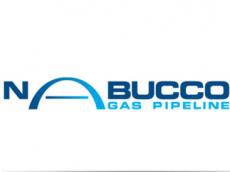|
|
TODAY.AZ / Business
Nabucco enters EIA Approval procedure for Bulgarian section
05 November 2012 [20:42] - TODAY.AZ
 The 422 km long Bulgarian section of the Nabucco pipeline has formally entered into the Environmental Impact Assessment (EIA) Approval phase, the Nabucco National Company in the country announced today.
The 422 km long Bulgarian section of the Nabucco pipeline has formally entered into the Environmental Impact Assessment (EIA) Approval phase, the Nabucco National Company in the country announced today.The documentation relating to the EIA procedure was submitted to the Ministry of Environment in Bulgaria on 31 October 2012.
Earlier this year, Nabucco announced the completion of the EIA permitting process for the Hungarian section of the route, where the last of four permits was granted in June.
Reinhard Mitschek, Managing Director of the Nabucco Gas Pipeline GmbH, said: “Nabucco is far advanced in Bulgaria, and we congratulate the team there on this next step in the development of the project. Nabucco is committed to following best practices in line with national and international regulations, to working with all stakeholders to ensure that we present a win-win situation for the countries we transit.”
Marii Kossev, Managing Director of the Nabucco National Company in Bulgaria said: “We look forward to continuing our excellent cooperation with the authorities: to incorporating their feedback and working with the public and other stakeholders in the EIA process. Apart from promoting diversification of energy supply and freedom of choice for the Bulgarian consumer, Nabucco will create hundreds of jobs in Bulgaria, one billion euro of investment, taxes and create new business opportunities.”
The submission of the EIA documentation represents the beginning of the legal process surrounding Environmental Impact Assessment in Bulgaria. Following a review by the competent authority, Nabucco (represented in Bulgaria by its national company), will incorporate feedback after consultations. The next step will be to hold public consultations along the route, after which the application will return to the authorities for a final decision.
Connecting gas from the Caspian Region and the Middle East to over 500 million potential customers in Europe, Nabucco is the flagship project in the Southern Corridor. The Nabucco consortium continues to work closely with the Shah Deniz II consortium and with the Trans-Anatolian Gas Pipeline (TANAP) and remains confident that it offers the best solution to capture new supply sources and bring them to the large European consumer markets.
/Today.Az/
URL: http://www.today.az/news/business/114728.html
 Print version
Print version
Views: 1105
Connect with us. Get latest news and updates.
See Also
- 23 October 2025 [12:59]
Greco-Roman wrestler crowned world champion - 23 October 2025 [11:14]
Uzbekneftegaz and SOCAR discuss acceleration of geological exploration in Ustyurt Plateau - 23 October 2025 [10:41]
Azeri Light crude edges higher at Augusta and Ceyhan ports - 23 October 2025 [10:20]
Autumn sowing campaign launched in Jabrayil district - 22 October 2025 [19:21]
State budget expands 50-fold over three decades amid strong economic growth - 22 October 2025 [18:19]
Cargo transport via East-West Corridor up by 90% since 2022 - 22 October 2025 [15:57]
Azerbaijan strengthens economic ties with Latvia, Estonia, and Finland - 22 October 2025 [14:38]
New Azerbaijan-Kazakhstan deal aims to boost SME services and innovation - 22 October 2025 [13:19]
Azerbaijan targets 25 mln tons throughput at Baku Port - 21 October 2025 [12:53]
Masdar and Azerbaijan mark 1 bln kWh at Garadagh Solar Plant
Most Popular
 Azerbaijan and Kazakhstan are taking region's geopolitics into their own hands
Azerbaijan and Kazakhstan are taking region's geopolitics into their own hands
 President Ilham Aliyev, President Kassym-Jomart Tokayev make press statements
President Ilham Aliyev, President Kassym-Jomart Tokayev make press statements
 Pashinyan thanks President Ilham Aliyev for lifting transit restrictions toward Armenia
Pashinyan thanks President Ilham Aliyev for lifting transit restrictions toward Armenia
 Vietnam and Finland vow to strengthen aviation ties
Vietnam and Finland vow to strengthen aviation ties
 Peace on paper, claims in symbols: Armenia’s reform paradox
Peace on paper, claims in symbols: Armenia’s reform paradox
 Greco-Roman wrestler advances to World Championship semifinals
Greco-Roman wrestler advances to World Championship semifinals
 South Korea unveils missile-equipped combat robot
South Korea unveils missile-equipped combat robot
